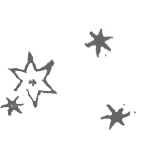Music of the Spheres
Music and Astronomy
According to the ancient Pythagoreans and many later writers, all of nature is a musical scale. Music illuminated the study of astronomy, while astronomy provided a context for understanding music. Only through mathematics may nature be known.
Browse Items on Display
| 1 |
The Marriage of Philology and Mercury Capella, Martianus (1499) Capella described the seven liberal arts. The first three are grammar, logic or dialectic, and rhetoric. Then come the mathematical sciences, geometry and arithmetic. Geometrical circles in motion make astronomy. Numbers in motion make music. |
 |
| 2 |
On the Two Worlds, namely the Major and the Minor Fludd, Robert (1617-1621) For Robert Fludd, the universe is a monochord, its physical structure unintelligible without an understanding of music. In another section of the book, Fludd depicts the universe as a Temple of Music. |
 |
| 3 |
Universal Music-Making Kircher, Athanasius (1650) This 17th-century treatise on music shows a mechanical, water-driven organ. Water enters on the right side of the diagram, turning a gear mechanism that animates a cylinder roll and keyboard. Musical notation cut into the cylinder roll determines the keys depressed for any given time. |





